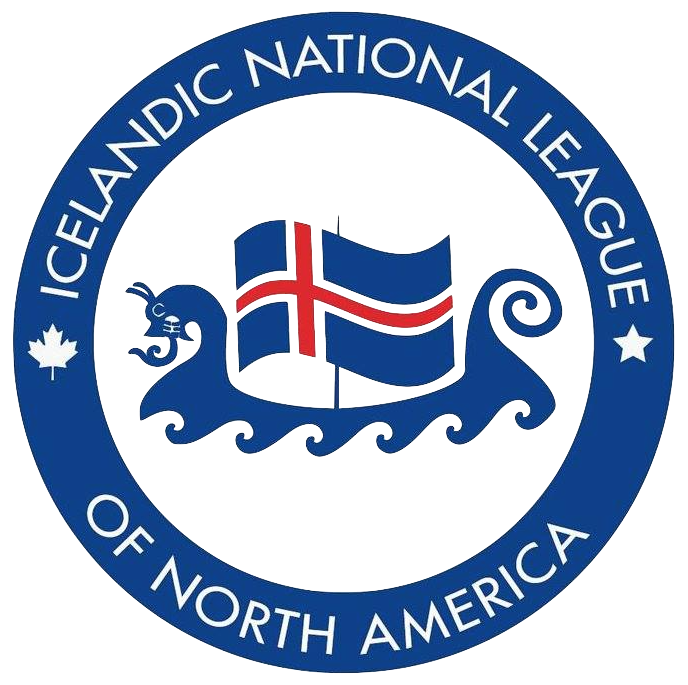Jorunn Hinrikson Lindal
1895 – 1941
Lawyer/Humanitarian
Churchbridge, SK, | Winnipeg.MB
Jorunn was born in the Thingvalla district, near Churchbridge, Saskatchewan February 9, 1895. She was the second of three daughters of immigrant pioneers Magnus and Kristin Hinrikson, who came to Canada in 1888 from Iceland. She received her early education in Churchbridge and Yorkton, Saskatchewan, attended United College in Winnipeg and graduated in Arts (BA) in 1916 with the highest marks in her class every year. Her subjects ranged from Economics and Political Science to English poetry. All this was at a time when women had not been granted the right to vote in Manitoba (1916) or Canada (1918).
Jo decided to study Law, and entered Manitoba Law School in 1916. She graduated in the spring of 1919 and won the University of Manitoba Gold Medal for Law. She was admitted to the Manitoba Bar where she gained the highest mark on her Bar examination. Jo married Walter Lindal April 20, 1918 in Winnipeg after he was invalided home from the front lines of World War I. She practised Law with her husband from 1919 to 1923. Jorunn had two daughters.
Following her retirement from the practise of Law, Jo became very active in community and public affairs. She became concerned about and interested in the high rate of unemployment and lack of training and opportunity for youth and women, particularly during the depression years. She undertook a comprehensive survey of the unemployed women in Winnipeg in 1934, with the assistance of the YWCA. This highlighted the lack of facilities for any sort of training. She worked closely with many community groups, establishing training programs, mainly along the lines of domestic and home care. She was instrumental in setting up the Winnipeg School for Household Assistants. This led to her appointment in 1936 as a member and later Chairman of the Advisory Council of the National Employment Commission sitting in Ottawa. She was subsequently appointed a representative of the Dominion Government on the Dominion-Provincial Youth Training Council. She also later represented the western provinces at the Canadian Council of Education for citizenship.
Jo was also very interested and active in her community. She participated in the Womens Liberal Association and campaigned vigorously through public speaking on behalf of various candidates, though she never ran for office herself. She was an active member of the University Womens Club, serving on its executive and as chairman of various study groups. In 1936 she was President of the Womens Canadian Club, and a member of the Social Science group of Winnipeg. She was on the Executive of the Central Council of Social Agencies. She was a much sought-after speaker at luncheons, dinners and various events.
One of her last important tasks was the drafting of a program of educational lectures for many trainees, designed to provide a comprehensive picture of the issues of the war and Canada’s part in it. The idea originated with Jorunn and was approved by the Department of National Defense and prepared under the sponsorship of the war services branch in Winnipeg. A committee of five was set up and the prospectus of the project was ready just before the Nazi invasion of Russia. This sudden turn in the war necessitated some revision. The lectures were accepted and became a part of the army training program, known as the “Battle of the Brains”. The work was carried on by her husband after her untimely death in 1941. The number of lectures were increased to fifteen and 300,000 copies were printed and distributed to the three Armed Forces.
Jo Lindal passed away November 1, 1941, at the age of 46 years, following poor health for several months. An editorial in the Winnipeg Free Press (November 3, 1941) described her as
“a beautiful poised woman from the west, with her lovely sea-blue eyes, her blond Viking hair and her soft contralto voice. She is known in the capital where so many came for private advantage, as among those who never asked for herself, whose mind was stayed on what she could do for the country.”
An editorial in the Winnipeg Tribune (November 3, 1941) stated that
“a gay brave spirit has passed from Canada with the death of Mrs. Walter Lindal. Most Manitobans know the long list of accomplishments which she had to her name, even though she died so young. “Jo” Lindal made a magnificent impact on Winnipeg, on Manitoba and, in the end, on all Canada. She was one of our foremost citizens, this Canadian girl of Icelandic origin. The record of her accomplishments in women’s work, in work for our youth, reads like an honor roll of all that is most worthwhile in this community. It is this that so tinges us with regret – there is so much work for leaders like “Jo” Lindal to do in Canada at this hour.”
Ruth Hilland


